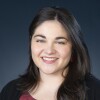Putting research insights into practice in classrooms is a perennial challenge for schools.
Interventions created and tested in lab settings don’t always translate well to the messy reality of a classroom. Researchers and developers may not account for realities on the ground, and educators might not implement practices as intended.
Theose are some of the issues that the Advanced Education Research and Development Fund, or AERDF, is trying to tackle.
The initiative—funded by the Bill & Melinda Gates Foundation, the Chan Zuckerberg Initiative, and the Walton Family Foundation—takes an “inclusive R&D” approach, aiming to bring together educators and researchers to design and execute academic interventions and assessments collaboratively.
“We need those different perspectives and ways of knowing in order to be able to solve the myriad problems we have,” said Auditi Chakravarty, AERDF’s new CEO, who joined the group earlier this month.
Conversations about education research and development have recently gained national traction, in the aftermath of the pandemic. Late last year, President Joe Biden signed a government funding bill that increased spending for education research, and laid the groundwork for an education equivalent of DARPA, the U.S. Department of Defense’s R&D arm.
There’s “greater appetite and interest in learning science” across the education field right now, said Chakravarty. At AERDF, the goal is to incorporate a wider range of voices in the process—"putting educators, practitioners, school districts on equal footing in the process as the researchers and the developers,” she said.
(Education Week receives operating support from the Gates Foundation, support for coverage of whole-child approaches to learning from the Chan Zuckerberg Initiative, and support for coverage of students most in need from the Walton Family Foundation. The newspaper retains sole editorial control over coverage.)
Education Week spoke with Chakravarty about the promises and challenges of an R&D approach that asks researchers and practitioners to co-design solutions. This interview has been edited for length and clarity.
How do you see AERDF’s work changing post pandemic, as schools look for solutions that are going to help students regain ground academically and emotionally?
The moment that we’re in creates an opportunity, because so many people—school districts, the government, the nonprofit sector, practitioners—everybody’s focused on and recognizing that we need solutions. We need to try things that we haven’t done before, we need to bring research and development to bear to address the needs of priority communities.
A role that AERDF plays is this very specific model of inclusive R&D that centers students and educators from this asset-based approach. So much of the conversation post-pandemic is not about students’ assets, it’s about deficits. And, yes, we all care about reading skills, math skills, and making sure that students are making progress.
But I think that this moment creates this urgency to say, students didn’t lose themselves for that period of time. There’s a whole host of things in their lives and their communities and their experiences that are part of who they are and the assets that they bring to the table. How can we harness that from the very beginning of our development process within each of our current programs and future programs, and start from a point of view of, “How do we build from what students already have?”
There is more conversation across the field and greater appetite and interest in learning science, and bringing learning science to bear on some of these issues. The opportunity then that we have as AERDF is to do that in collaboration with these priority communities that we’re so focused on, because that’s often the piece that gets missed.
There’s a lot of conversation about what students missed in the pandemic. What does it look like to think about supporting kids’ development of skills and knowledge, but from an asset-based approach?
A great example of that is Assessment for Good, which is our program that is squarely focused on starting with the whole student, the whole child, and all of the things that they bring to the table: their attitudes, their self-concept, the many things about students that aren’t just their math skills.
There’s one project where we’re trying to get a sense of the students’ mindset around math learning. How are they approaching and thinking about this? It’s not just the skills, it’s all of these other aspects of a child’s life that have bearing on whether they have those skills or not. Assessment for Good is squarely focused on, how do we assess those things?
How do we create assessments that recognize that all of those different dimensions of how students feel are constantly in an interplay with whether they’re actually getting the math right or not? And then, how do we build interventions that will actually leverage that knowledge about the whole student, so that they’ll get better at math?
How do researchers in psychology and neuroscience and education researchers all fit together into an inclusive R&D process?
In the traditional R&D model, you’ve had researchers who do very bespoke, lab-oriented research, and developers who may or may not work with those researchers. Then they throw things over to test them out with, at best, the communities that we’re concerned about. And oftentimes, in very different communities that are “easier” to work with.
Where we are looking to make a difference is to change the positioning of those three parties, and the power dynamic among those parties. Putting educators, practitioners, school districts on equal footing in the process as the researchers and the developers. We have projects that do this, approaches that break down the silos so that it’s no longer each of them working in their silo, and then passing it to the other, but all coming together. That’s the difference of what it is that we’re trying to do.
We need those different perspectives and ways of knowing in order to be able to solve the myriad problems we have. We’re cultivating this community of practices, our community garden, and it’s focused on this idea: creating open engagement opportunities, open conversation, open dialogue and collaboration among researchers and practitioners and developers that have a broad array of backgrounds.
What benefits come out of that kind of collaboration? What opportunities does it open up?
I think implementation is a big one. We know that implementation is where so many change efforts fail. One of the real benefits of starting with educators at the table is, you solve for that. If you’ve been in a classroom, you know, “These things that they’re expecting me to do—nothing is that seamless.”
Another benefit is the opportunity to shine a light on and find great work happening locally, and figure out—how can we learn from that, generalize from that, and bring that to scale?
All of these things, whether it’s building and designing with implementation in mind from the beginning, or taking things that are already being tested in communities with students and then figuring out how to scale those and generalize those—these are means to momentum for us. They create the possibility that we could get something out into the field, out into the hands of other practitioners, faster than a typical linear R&D model.
In the linear model, R&D takes a few years. Then you go and throw it over into a district and implementation fails, or they realize, we’ve got to go back and change a few things. You’ve just added more time onto that. That timescale, we’re seeking to shorten it by involving the educators from the get go, finding great ideas where they already exist, and then kind of incubating and building on those.
These are big problems, and there’s some urgency to solving them. They’re real students and families and educators whose careers and lives and educational futures are at stake. We’re trying to accelerate with the needs of these critical communities at the center of our minds.







